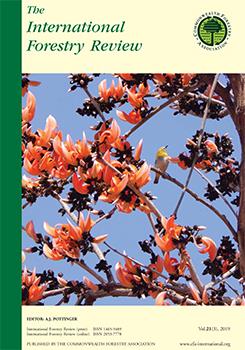As technological advancements in forest monitoring – such as remote sensing and commodity supply chain tracking – allow for the generation and analysis of increasingly large datasets, forest policy makers and practitioners are looking for innovative yet practical ways for information transparency to transform forest governance. Especially in tropical forest countries looking to address the continuing deforestation and forest degradation through climate finance commitments and timber trade agreements, the access to information agenda has been placed at the fore of both the Reducing Emissions from Deforestation and forest Degradation (REDD+) process and the Forest Law Enforcement, Governance and Trade (FLEGT) Action Plan. This paper explores whether and how the proposed transparency agenda is having an impact (or not) in the Southwest Region of Cameroon. Using semi-structured interviews with civil society organizations, this paper examines how information is currently disclosed in the forest sector and the status of REDD+ and FLEGT transparency agendas at the local level.
How to translate text using browser tools
16 October 2019
Access to Information and Local Democracies: A Case Study of REDD+ and FLEGT/VPA in Cameroon
S. Carodenuto
ACCESS THE FULL ARTICLE

International Forestry Review
Vol. 21 • No. 3
October 2019
Vol. 21 • No. 3
October 2019
decentralized resource management
forest governance
information transparency
sustainable development




